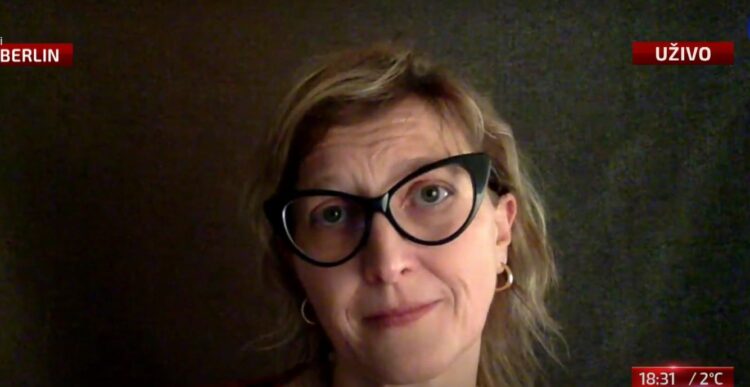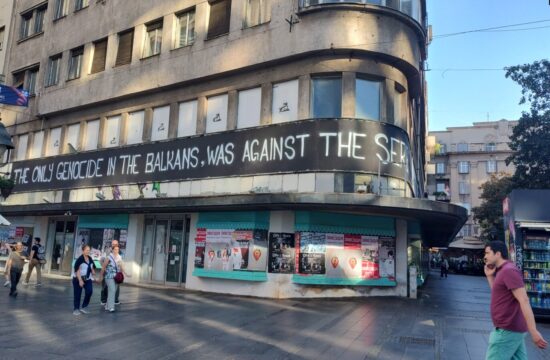
So far, nearly 10,000 people have seen the film ‘Quo Vadis, Aida’, Bosnia’s candidate for the Academy Award, and director Jasmila Zbanic told N1 that she hopes her film is perceived as a call for all the mass graves in the country to be revealed, “so we can breathe easy and turn towards better days.”
The film, which was named best foreign feature film at the 57th Antalya Film Festival and was screened at the Venice Film Festival and at the Toronto Film Festival, was praised by numerous critics across the world.
The plot revolves around Aida, a translator working for the UN in the protected safe zone of Srebrenica on the eve of the July 1995 genocide.
The film can now be viewed online in all the countries of former Yugoslavia until December 3.
Zbanic said that she did everything she could so as many people as possible could watch the film in the cinema, saying that “we put an effort into every detail, sound, colour, the acting.”
“As we realised that the (coronavirus) situation is not improving, we released the film so it could be seen at home,” she said.
“I have passed the film on to the people and I feel that it’s less and less my own but that it’s becoming something that should have a life of its own. When we were making the film, we hoped for positive reactions, but we never know what it will be like when it airs in cinemas,” she said.
Zbanic said that the film had the biggest impact on those who survived the Srebrenica Genocide when it was aired at the Srebrenica–Potocari Memorial and Cemetery for the Victims of the 1995 Genocide.
“We did all we could to prevent making any mistakes and to ensure that the film tells their story. And when we were told that it was authentic and that this is what they survived, it was very important for us. We dedicated this film to mothers and women who are still searching for their sons and their families,” she said.
“I hope that this (film) also represents a call for all the mass graves in Bosnia and Herzegovina to be revealed and for us to finally finish these stories about war crimes, for the perpetrators to not remain living in the same areas (as the victims), so we can breathe easy and turn to some better days,” she said.






